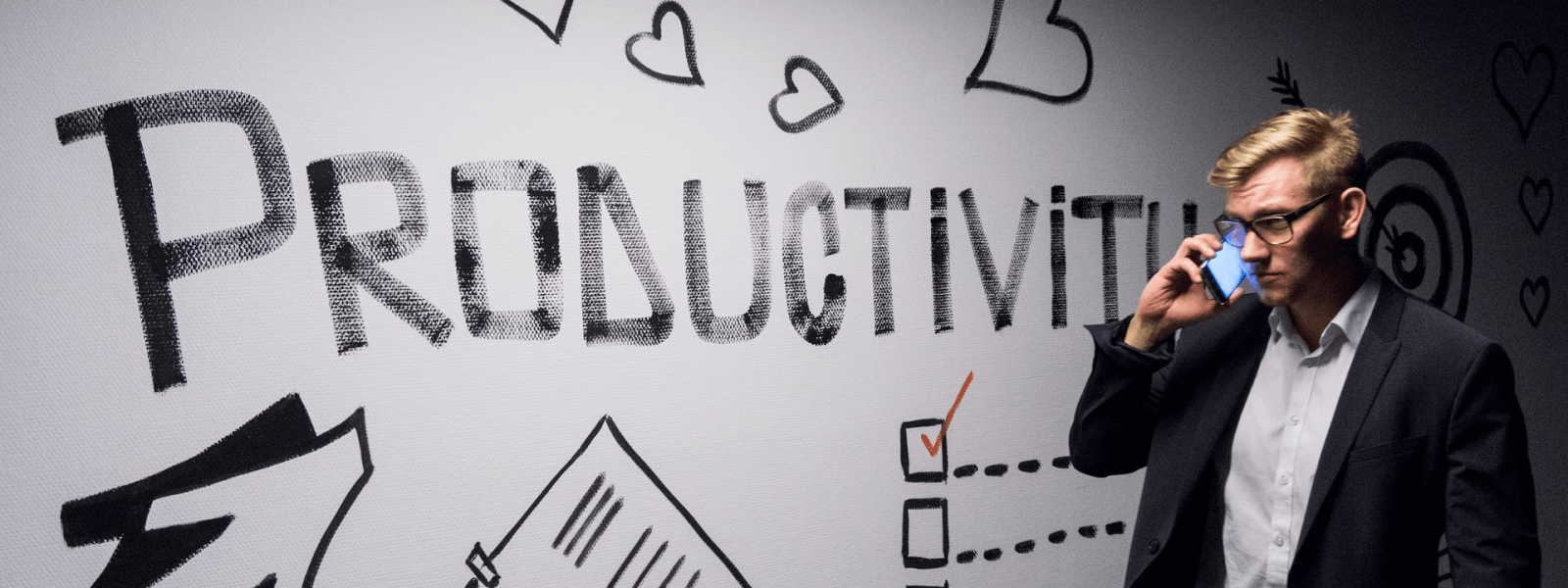How to think more productively
on 17 June 2019 for ProfessionalsA while ago, Functional Analyst Jolien Jackers took the time to write a blogpost on the Rational Emotive Behaviour Therapy or REBT in short. How do people create their own stress and how do I start thinking more productively? Keep reading or have a look at Jolien’s full article right here!
MANIC MONDAY
Miss X, functional analyst of thinkDifferent Inc. arrives breathless at the office. Her train was late again and the follow-up meeting of her main project had already started. She runs to the meeting, where she opens her mailbox, 75 mails unread. One with an orange exclamation mark from her team lead asking to present her functional analysis on Tuesday for the whole team, including the account manager. Her mind starts spinning, worst case scenario(s) are flashing before her eyes. ‘What if I don’t know all the answers to the questions? ‘They will think I’m not suited for this job.’ ‘I can’t do it, it’s horrible, I can forget my career’ ‘I can’t stand criticism, I won’t survive’, ‘I won’t say anything about my free-riding colleague, because when I do we’ll be in trouble and we can’t work together as a team anymore’ ‘I hope the account manager is not too hard on me, he has no right to treat me like that, I have worked so hard.’
On the other side of the floor, there’s miss Y, also a functional analyst of thinkDifferent Inc. She arrives surprisingly relaxed at the office. On the way to work she’s been stuck in traffic for more than an hour and received a parking ticket. She enters the meeting room 20 minutes over time with a ‘fashionably late – smile’ and takes her place at the conference table. She receives the same mail from her team lead. The first things that come to her mind are the growth opportunities and challenges, which make her even more exciting for giving the presentation.
Two people can go through comparable situations. The difference lies in the perception, the way of thinking relative to the events. They think different; therefore, they feel different.
Tension and stress appear rarely only due to external circumstances. People tend to create their own stress. The way of thinking and fantasizing ultimately determines how one behaves. This is the starting point of the Rational Emotive Behaviour Therapy, REBT.

5 TYPES OF IRRATIONAL THINKING
Regarding to Albert Ellis (1913-2007), the founder of the REBT theory, there are five types of irrational thoughts that result in unproductive thinking.
1. Unhealthy perfectionism
‘What if I don’t know all the answers to the questions? ‘They will think I’m not suited for this job.’
The unproductive thought comes forth out of the exaggeration, there’s nothing wrong with trying to be the best possible version of yourself. Nobody likes to make mistakes, but the reference towards your own true value is wrong. It’s irrational, as if someone’s worth depends on the amount of errors one makes. As is one has to be perfect, just to achieve a positive self-esteem. The pitfall here lies in the constant awareness of ‘I can’t make any errors’, which will result in failure more often. These thoughts result in avoiding risks, taking the safe path and time loss due to constantly trying to control everything.
2. Disaster thinking
‘I can’t do it, it’s horrible, I can forget my career.’
The pitfall here is that people think that facts which can be interpreted as negative, will also turn out to be negative. Consequences of this type of thinking are: building unnecessary tension, creating indecision and avoiding risks.
3. Low frustration tolerance
‘I can’t stand criticism, I won’t survive.’
This irrational thought originates in thinking that tasks are too heavy or impossible, which concludes in an emotional expression, when not everything went according to the plan. It’s the underlying thought wishing the world would be easier than it is in practice. Not everything is fun and games, but if you try and succeed in challenging tasks, you will feel better than before. This kind of thinking provokes tension, displeasure, lack of effort and giving up too quickly.
4. Love junk
‘I won’t say anything about my free-riding colleague, because when I do we’ll be in trouble and we can’t work together as a team anymore.’
Here, the exaggeration lies in the idea that it is absolute necessary for people to like you and appreciate the way you behave. Of course, it’s nice if that’s the case, but it’s not a basic need like food and water. Love junks often avoid conflicts and don’t dare to express their opinion.
5. Demanding train of thought
‘I hope the account manager is not too hard on me, he has no right to treat me like that, I have worked so hard.’
It’s irrational to expect that everyone lives by the same rules and assigns the same value to these rules. People don’t accept reality as it is and require it to change. Accepting doesn’t mean approving. In order to diminish emotional reaction and unconstructive and ineffective behaviour, one has to accept what can’t be changed.

YES, WE CAN!
To create a more productive way of thinking, one must keep Ellis’ ABC scheme in mind.
- A – activating event: investigate the essence of the event
- B – belief: put thoughts into words, ‘what do I tell myself’, perception
- C – consequence: possible feelings: fear, anger, guilt
When miss X from the example above arrives at home, she’ll tell her partner: ‘the mail of my team lead makes me nervous’. As if an e-mail directly provokes emotions, as if we go from A directly to C. People tend to look for the causing factor outside themselves. According to the REBT theory, it’s not the event that gives birth to the emotional reaction, but the perception of the activating event.
To be able to understand what the REBT theory stands for, it’s important to clearly distinguish observation, interpretation and evaluation. On a daily basis, people unconsciously equalize observation and interpretation, which may result in miscommunication.
- Observation: objective description of the event
- Interpretation: adds meaning to the observation, this meaning can be right or wrong
- Evaluation: gives an emotional charge to the event
Start to think in a different way. This will be a long process of self-observation, change, integration and stabilization, but definitely worth the ride.
Put yourself in place of Miss X:
Self-observation: which thoughts make me feel emotional/stressed?
- Fear: What if I don’t know all the answers to the questions, they’ll think I’m a useless employee
Change your way of thinking: *why will they think that?
- It’s not because I can’t answer all of the questions, that I’m a bad employee. Of course, it would be nice to respond to all of the questions, but I’m human after all.
Integration: Think again of the example with the why*
- Now you’ll feel a bit more peaceful to start the presentation
Try to change irrational ideas into constructive ideas, which cause less stress. Hereby, avoid non-realistic, too positive expectations of the situation. Integrate your new style of thinking and stabilize it, so you create a new habit which facilitates new behaviour.
Tags: exellys , exellyst , personal branding , productivity



